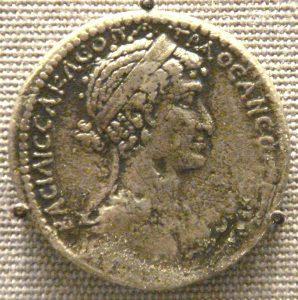
While most examples of leadership throughout history reflect the military prowess of masculine-dominant, patriarchal cultures, here are a few timeless principles of leadership from the Ancient World that are still valued in business in the 21st century.
Alexander the Great
After leading the Macedonians to a long-fought victory over Darius III and his Persians, Alexander drove his army to exhaustion. Contrary to wiser counsel, Alexander continued his ambitious attempt to expand his conquests to the east and died attempting to enter the city of Babylon. (It’s theorized that he died of malaria, which he may have contracted trying to enter Babylon via swamp land on the west side of the city.)
Alexander teaches us that great leaders inspire others with vision and strategic execution of that vision without making about themselves (ego).
Augustus Caesar (Octavian)
Especially in the early days of his reign, Augustus was not one to allow his enemies to get the better of him. He was ruthless in getting rid of those who didn’t fully support him after his uncle Julius Caesar’s demise, including Marc Antony. But as things settled in, Augustus understood the importance of keeping Rome running efficiently and effectively without the need for the drama of constant conquest. Thus began the Pax Romana.
Augustus teaches us that responsible administration is as important as flashy achievements.
Cleopatra
Strategic, intelligent and worldly, Cleopatra kept her focus on Egypt and what would be best for the Egyptian people, even if that meant creating an alliance with Rome, Egypt’s nemesis and the superpower of its day. In fact, Cleopatra was the first Ptolemy to learn the Egyptian language, which shows the importance of identifying with her people. She worked hard to maintain Egypt’s independence from Rome by creating strategic relationships with Eastern countries from Arabia to India.
Cleopatra teaches us to focus on what’s best strategically and out of responsibility for the entity or people you lead.
Leonidas
Leonidas led a force of about 1500 Greeks (300 of whom were Leonidas’ own Spartans) who stayed behind to guard the rest of the retreating Greek army from the Persian advance at Thermopylae. Most of this remaining Greek force was killed, including Leonidas and his 300 Spartans.
Leonidas teaches us that a leader must be willing to sacrifice short-term gain to achieve the long-term objective.
Hannibal
Hannibal ate, slept, and fought with his men and embodied the strength and stamina he expected his troops to maintain even while they were camped in the Alps during the harsh winter without adequate shelter and provisions.
Hannibal teaches us that leaders “go first”. Whatever you expect of your employees and company as a whole, you must be the leading example and role model for it.
Boudicca
Boudicca sought revenge against the Romans after they disregarded her deceased husband’s will and usurped his kingdom, disinheriting his wife and daughters. After 3 decisive victories against the Romans with her Celtic rebel forces, she pressed on, despite the fact her army was worn out and hungry. Although she had superior numbers, the Romans strategically chose a battleground that worked to their advantage. Driven by revenge, Boudicca attacked anyway and lost.
Boudicca teaches us to temper single-minded passion or heightened emotion with a measured, rational assessment of a situation.
While the context of life thousands of years ago was vastly different from that of the 21st century, ancient leaders exhibited timeless principles that still serve leaders today:
1. Have a compelling vision and execute it effectively without a focus on your own ego.
2. Build trust with employees and customers through consistent day-to-day administration.
3. Serve the greater good and know that strategically you may need to sacrifice in the short-term for long-term gain.
4. Leaders go first.
5. Balance heightened emotion like revenge or unbridled passion with reasoned judgment to avoid unnecessary risks.
